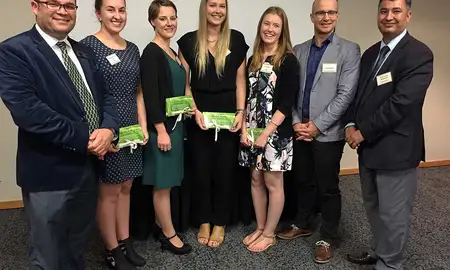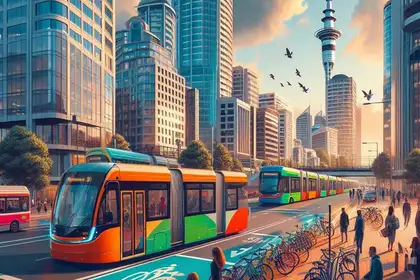
Transport policy and planning are always political.
Actions such as spending $44 million on consultants and then killing the Light Rail Project in Auckland, de-establishing Let’s Get Wellington Moving, removing transport-related emission targets in the Government Policy Statement of 2024, and reintroducing Roads Of National Significance and the Fast Track Bill just in one year show the political rollercoaster of transport planning.
Politics act as a ‘gravitational force’ in transport planning and this will not change in the foreseeable future. So what is the solution? More politics or less politics?
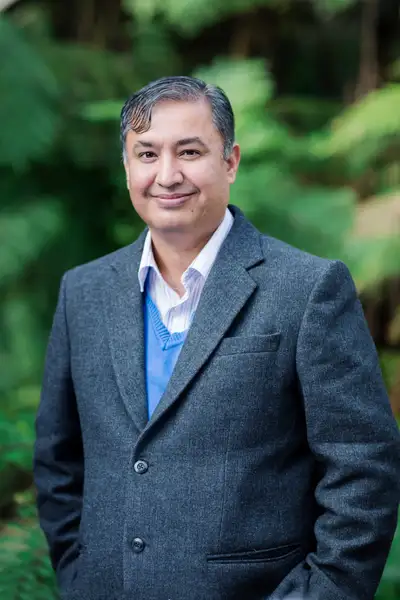
Professor Imran Muhammad.
Political power vs technical knowledge
Professor Bent Flyvbjerg’s work at Oxford University argued that scientific and technical knowledge is not enough for making and unmaking transport mega-projects. We have to develop a contextual understanding and explore the power relations in a society. Power is a relational concept which generates specific visions and ideologies converted into policies and projects. We have to ask the question of who gains and who loses by advancing a particular transport project. Transport mega-projects might help gain political mileage, implement technology, grow businesses, and even create a city’s identity, such as the Harbour Bridge in Auckland. Therefore, we have to develop the political rationalities of each project as much as we develop the transport-related technicalities and economic realities of these projects.
Understanding the uncertainties and complexities
Most transport projects (including roads and public transport) go over budget and over schedule and deliver fewer benefits than they initially promised. The reason is that large-scale transport projects contain increased uncertainty and complexity. In recent years, New Zealand has seen the increased cost of Transmission Gullyand the City Rail Link as a result of COVID-19 and the delays in construction caused by global supply chain issues, labour shortages, and the international politics of the Ukraine War. Artificial intelligence (AI) might help in improving technical assessments, but the complexity and uncertainty will not go away.
What constitutes a “successful” transport mega-project?
Professor Harry Dimitriou’s work at University College London showed that traditional business cases and project management criteria relating to cost overruns, completion dates, travel time savings for users, and rates of returns for judging success are highly misleading and also promote additional major risks and uncertainties for the sustainability of such investments. Success means that a transport project can effectively meet the needs of intra- and inter-generational equity and the global concerns of climate change and economic prosperity. Therefore, we need multidimensional criteria that include environmental, economic, social, and institutional sustainability. This would help us to understand whether a transport project contributes to or hinders broader long-term success. Success is different in different time periods, in different spaces and within different cultures. The power of context can be found by broadening our analysis.
Building coalitions and creating a window of opportunity
Dr Crystal Legacy at Melbourne University worked extensively on de-politicising and re-politicising transport planning in Australia and Canada. She put strong emphasis on building a coalition, developing a collective will, and “creating a window of opportunity” for change in transport planning. For her, re-politicising transport planning did not mean contestation but meaningful engagement that achieved a central common goal. The process of a transport policy or project is politically messy, unpredictable, and contested. Professionals and the public can influence the direction of transport planning if they pitch the right project at the right time and build political support. Even if there is no substantial physical change in the near future, this effort can bring awareness of new ways of framing transport problems and developing solutions in the long term.
The City Rail Link project is an example which was proposed back in 1929, lobbied by Sir Dove-Myer Robinson in the 1950s and 1960s, agreed to by both the Labour and National-led governments in the 1960s and 1970s and will now be operational in 2025, nearly 100 years later.
Our own work on the future of automated vehicles (AVs) in New Zealand has emphasised political–institutional factors at the strategic, tactical, operational, and reflective levels that may influence a successful transition to AVs in the future.
Decolonising the future of transport planning
The future of transport planning lies in thinking beyond techno-rational mathematical modelling, forecasting, Benefit- Cost Ratio (BCR), and AI by considering the politics of transport planning. In the New Zealand context, future politics should not ignore Tiriti o Waitangi-led responsibilities. I have no idea what Tiriti-led transport looks like. However, there are some key principles to follow:
- First, we must understand the limitations of current professional practices and frameworks, which created the negative politics in transport planning evident over the past few years.
- Second, we must think about the co-production of transport-related knowledge. We have to build clear connections linking transport politics, policies, and professionals with Māori communities. We can build relationships with Māori and add the everyday experiences of local communities and sociocultural values to our models and impact assessment reports.
- Third, we must integrate nature and culture with transport-related knowledge to include ethics and justice in transport planning.
New Zealand needs a broader discussion on what Tiriti-led transport policies, planning, and projects look like. We have to respond to this discussion by paying close attention to the power relations and politics that have contributed to our transport-related challenges in the first place. It is a continuous journey of the creative destruction of existing knowledge and co-producing an alternative transport system where our children and grandchildren can live in harmony with people and nature. Therefore, transport requires more rather than less political debate and understanding.
Related news
Study highlights Kiwi perspectives on self-driving vehicles
The adoption of automated or self-driving vehicles in Aotearoa New Zealand cities is dependent on social meanings, feelings and cultural practices, according to new research.
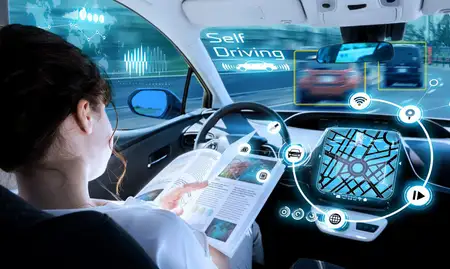
Opinion: Auckland Light Rail - Where do we go from here?
Light rail investment has become a new arena of global competition to make the most liveable cities in the world.
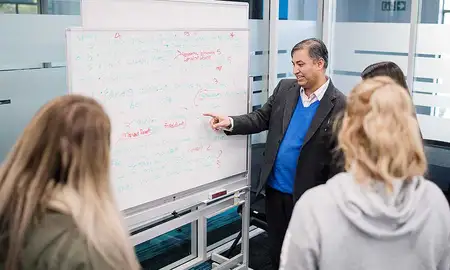
Planning students offer hope for people and planet
Developing affordable housing and finding solutions for conservation and hazard planning are among the special interests of four top students from Massey University's Bachelor of Resource and Environmental Planning (BRP) programme, recently awarded prizes by the Palmerston North City Council.
